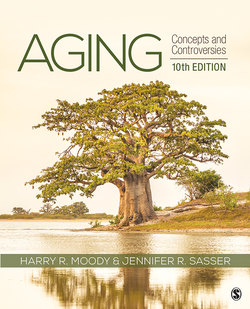Читать книгу Aging - Harry R. Moody - Страница 24
На сайте Литреса книга снята с продажи.
Social Class and Life History
ОглавлениеAmericans often don’t like to talk about social class, but it is impossible to understand the heterogeneity of later life experience without recognizing the importance of class and inequality. The 21st century so far has seen an extensive increase in inequality, as economists on all sides have recognized (Piketty, 2015; Stiglitz, 2015). The “end game” of our final years is shaped by the years that came before (Abramson, 2015). Increasing inequality among older people, especially those generations now approaching old age, suggests that we will see greater financial stress for poor older adults in years to come (Carr, 2019; Crystal, Shea, & Reyes, 2016).
We know that health challenges arise in later life. But the causes come much earlier. Social class has a lifelong influence on health status later in life, as demonstrated by the important Whitehall study in the United Kingdom (Hemingway et al., 1997). Early life events have long-lasting effects. The basic rule of accumulated advantage or disadvantage is that “the rich get richer and the poor get poorer.” For example, early completion of college and entry into a favorable occupation is converted during middle age into increased wealth in the form of home ownership and pension vesting (Henretta & Campbell, 1976). Women who enter the labor force at the beginning of childbearing usually have to accept career interruptions and tend to have diminished income later in life; thus, gender differences in old-age poverty are explainable partly as the result of life course choices made decades earlier.
History also plays a profound role in shaping lives. For example, a large historical event like the Great Depression can cause a dramatic and unexpected drop in income and status for many people (Elder, 1974). The cohort who were in their prime working years at the time were typically worse off financially in old age than their children, the current generation of retirees. This recognition of the influence of historical events has stimulated ongoing interest in using interviews and oral history to understand how social forces affect people’s lives (Cole & Knowles, 2001).
Unpredictable or non-normative life events, such as getting divorced or losing a job, also have a significant effect on the life course. Longitudinal studies show that a significant number of people will experience an unexpected but significant drop in income due to non-normative life events such as illness or a financial reversal (Duncan, 1988). Research has also shown that negative life events such as widowhood or job loss can cause a dramatic downturn in personal health and can profoundly affect an individual’s financial status during retirement. Such events induce a psychosomatic response to stress, and negative life events therefore become risk factors that predict the onset of illness (Holmes & Rahe, 1967). More recent work on how the immune system is impacted by negative social and psychological experiences further illustrates how personal resources for coping with stress can influence adaptation in later life (Friedman & Ryff, 2012). Yet the impact of life events is not a simple process. The same stressful life event—for example, becoming a widow—may have different effects on different people. The impact depends on whether the event was expected or anticipated and also on what kind of personal or family resources are available. Support from family and friends can help older people cope with stress and maintain self-esteem.
